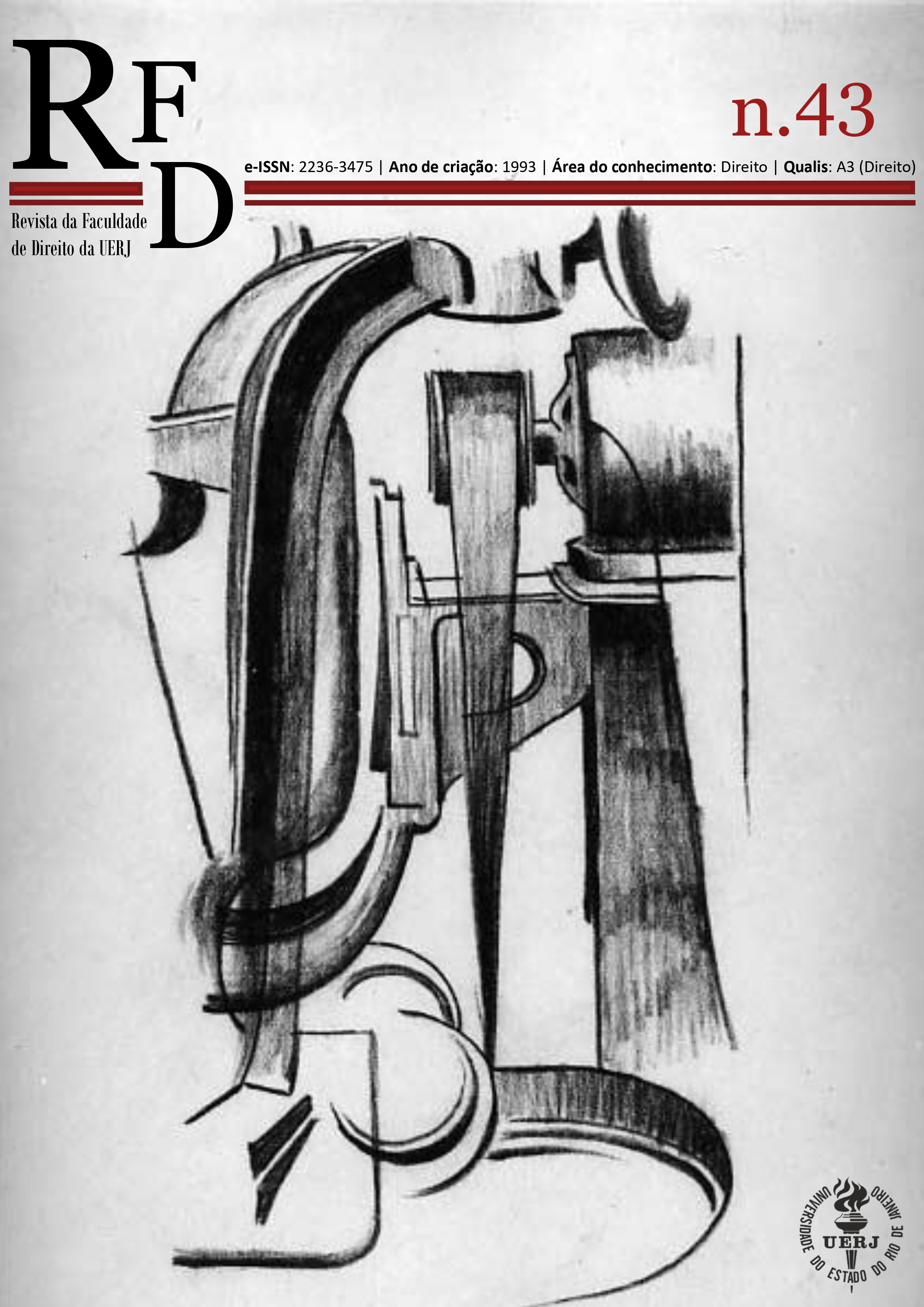AFINAL, POR QUE PUNIMOS?
A INCOMPATIBILIDADE DOS FINS UTILITÁRIOS DA PENA COM O MODELO PUNITIVO BRASILEIRO E SEUS DESDOBRAMENTOS POLÍTICO-CRIMINAIS
DOI:
https://doi.org/10.12957/rfd.2024.74968Palavras-chave:
modelo punitivo brasileiro, finalidades da pena, fins utilitários, retributividade, política-criminal.Resumo
O presente artigo buscou confrontar a realidade com a lei, no tocante às finalidades designadas à sanção penal, tendo por base as teorias da pena. A pesquisa buscou responder qual finalidade da pena é compatível com o modelo sancionatório brasileiro, a partir de uma análise concreta da realidade prisional, com vistas a se vislumbrarem desdobramentos de caráter político-criminal. Para tanto, estruturou-se a construção metodológica pelo método dedutivo, realizando um recorte teórico amplo, por meio de revisão bibliográfica do tema, sobre as teorias utilitária – analisando-se a incapacitação, dissuasão e ressocialização -, e retribucionistas, para, em um segundo momento, recortarem-se os achados científicos aplicando-os à realidade brasileira. Estabelecidas tais premissas, sustentou-se que, no Brasil, dado o modelo aplicado, apenas a retributividade pode servir como base para orientações de caráter político criminal, tendo em vista os fins utilitários não terem ou aplicação real ou dados científicos concisos suficientes para tanto. Ao final, vislumbram-se possíveis reflexões de caráter político-criminal derivadas da prevalência majoritária da retributividade sobre os fins utilitários, em especial com a centralidade do princípio da proporcionalidade como condutor da justiça na aplicação das sanções penais.
Downloads
Publicado
Como Citar
Edição
Seção
Licença
Direitos Autorais
oArtigos publicados na Revista da Faculdade de Direito da UERJ (RFD/UERJ)
Os Direitos autorais dos artigos publicados pertencem à Revista da Faculdade de Direito da UERJ (RFD/UERJ). É permitida a reprodução total ou parcial dos artigos desde que citada a fonte.
oReprodução parcial de outras publicações
Artigos submetidos que contiverem partes de texto extraídas de outras publicações deverão obedecer aos limites especificados para garantir originalidade do trabalho submetido. Plágio em todas as suas formas constitui comportamento antiético e é inaceitável.
Recomenda-se evitar a reprodução de tabelas e ilustrações, extraídas de outras publicações. O artigo que contiver reprodução de uma ou mais tabelas e/ou ilustrações de outras publicações só será encaminhado para análise se vier acompanhado de permissão escrita do detentor do direito autoral do trabalho original para a reprodução especificada na Revista da Faculdade de Direito da UERJ (RFD/UERJ). A permissão deve ser endereçada ao autor do trabalho submetido. Em nenhuma circunstância a Revista da Faculdade de Direito da UERJ (RFD/UERJ) e os autores dos trabalhos publicados nesta revista repassarão direitos assim obtidos.
·Os trabalhos não aceitos para a publicação serão devolvidos aos autores, se solicitado.
A Revista da Faculdade de Direito está licenciada com uma Licença Creative Commons Atribuição 4.0 Internacional.
Este trabalho está licenciado sob uma Licença Creative Commons 4.0, Atribuição-Sem Derivações.
Esta licença permite copiar e redistribuir o material em qualquer suporte ou format para qualquer fim, mesmo que comercial, desde de que citada a autoria original.











